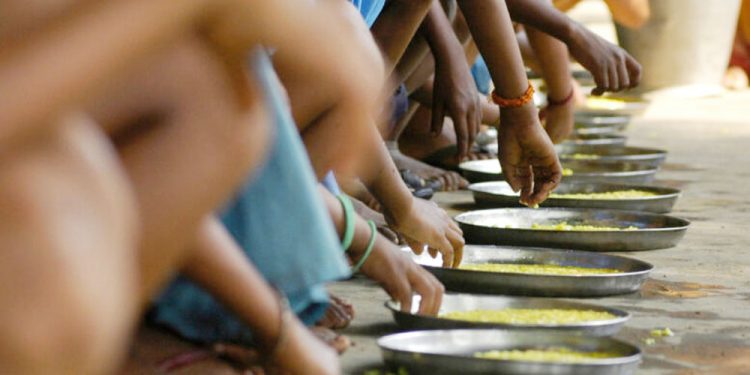Kanhu Charan Biswal
It is an irony that hunger problem exists in India although there is surplus of food in the country. Both seem to be contradictory to each other but it is a fact. It is also a fact that food is the third basic necessity after air and water for humans to remain alive. No welfare country can ignore its hunger problem. It is the first and foremost duty to see that not a single person remains hungry due to lack of food.
In spite of the fact that food is the most essential commodity for human life, it is not available to all. We are living in a world where all kinds of food are available to some people within a few minutes, whereas another group waits days together to get a handful of food stuff. People in developed countries are living amidst abundance of food and wasting tones and tones of food everyday while the ill-fated people in developing countries endure the pangs of hunger. Especially during the pandemic Covid-19, the plight of the people in countries like Yemen, Congo, Ethiopia and South Sudan etc. to mitigate hunger is really indescribable.
India is second in food production, after China. As a result of continuous efforts of the Indian government after introducing the Green Revolution in the country in the 1960s it claims to be self-dependent in procurement of food grains. Even the output has became surplus. In spite of the said achievement, 19 corer people in India starve every day. The number of hungry people globally crosses 82 corers.
As per the statistics, in 2020 India has remained in the 94th position among 107 nations in the Global Hunger Index. In 2019 its position was 102 among 117 nations and in 2018 it ranked 55th among 77 nations. This indicates that India hasn’t been able to solve its hunger problems till today. All other Asian countries, except Afghanistan, have remained above India in the Global Hunger Index. Bangladesh is in the 75th position and Myanmar in the 78th position. Even Pakistan is above India in this Index and occupies 88th position. If this situation continues it is meaningless to call India a food grain surplus nation. Despite its developed economy and adequate food production it has failed miserably in tackling the hunger problem.
Apart from starvation, many people in India suffer from malnutrition. It is a matter of great regret that in India over 7,000 people die of hunger every day. Similarly about 4,500 children below the age of 5 years die every day due to lack of food and malnutrition. Question arises as to what are the causes of this paradox. Poverty is the main cause of hunger in India. It not only leads to hunger, but also seriously affects the availability of adequate amount of nutritious food for the most vulnerable section of people. It is estimated that in India about 276 million people are in the very low income groups. Thus, major food and nutrition crises occur as people are too poor to obtain enough food.
One major cause of hunger problem is wastage of food in India. India is one of those countries that waste huge quantities of food every day. According to a report, India wastes as much as food United Kingdom consumes. According to the United Nations Development Programme, nearly 40% of the food produced in India goes waste. In terms of money India wastes `244 corer worth of food a day and `50,000 crore worth of food in a year. Huge amount of fruits and vegetables are also wasted every year due to lack of adequate storage facilities.
The gGovernment has launched several schemes over the years to help alleviate the hunger problem. The notable schemes are Antyodaya Anna Yojana, Garib Kalyan Anna Yojana, Annapurna Scheme, Midday Meal Scheme etc. The intentions behind these schemes are very noble. But due to lack of proper execution at the grass root level and rampant corruption prevalent everywhere the benefits do not always reach the people who need it most.
The hunger problem in India indicates the mismanagement of public distribution system. Several welfare schemes of the government to feed the poor also suffer from many lacunae. Most of the times the subsidies of the government meant for poor are not reaching them. This is due to lack of proper identification of deserving beneficiaries. All the loopholes and weaknesses found in the system should be eradicated by the government immediately in order to make India hunger-free.







































